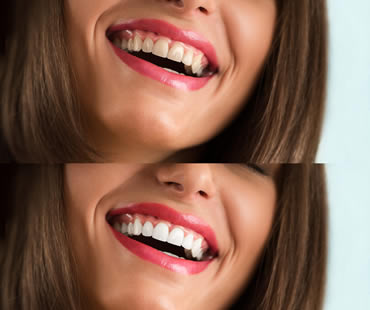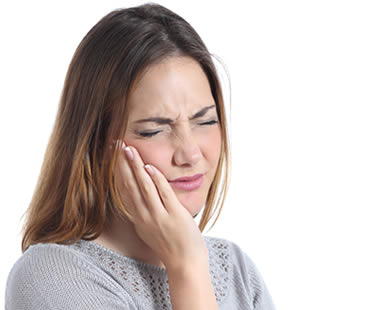
Dec 28, 2017 | Blog, Blackstone Dental Central Falls RI Dentist
Most people assume that senior adults all properly take care of their teeth by the time they reach that age. That isn’t always the case though, since older people face different oral health issues than they did in their younger years. It’s important for seniors to maintain a smart oral care routine so that their mouth will stay healthy their entire lives.
Here are some tips to help accomplish that goal.
Brush regularly
Seniors have a higher risk of receding gums and resulting problems like cavities and tooth loss. Brush your teeth at least twice daily with a soft bristled toothbrush, and rinse with mouthwash. Also floss your teeth daily. These tasks remove food and plaque from both your natural teeth and dentures, as well as below the gum line. Be sure to brush your dentures daily too.
See your dentist
Visit your dentist for regular checkups twice a year, whether you have natural teeth or dentures. Your dentist will check for gum disease, oral cancer, as well as clean your teeth and adjust your dentures if needed. Also, make sure you tell your dentist about any medical conditions, medications, allergies, or recent operations you may have had. This will alert him to any potential drug interactions or side effects that might affect your oral health.
Recognize warnings
Be aware of warning signs that you have a problem, such as red or bleeding gums when you brush. That can indicate an infection or other issue. Also tell your dentist if you have red or white patches inside your mouth, or sores that don’t heal within two weeks, because these may be signs of oral cancer.
Follow denture recommendations
Use the correct amount of denture cream or adhesive. If your dentures are uncomfortable or require using more than one tub of cream every three weeks, have your dentures evaluated by your dentist. An adjustment or replacement may be necessary.
Schedule your appointment at our Central Falls dental office

Dec 21, 2017 | Blog, Blackstone Dental Central Falls RI Dentist
Toothaches usually sneak up unexpectedly, and the pain can worsen quickly. When this occurs at night or when you can’t get a dentist appointment, over-the-counter pain medicine is your best option for relief. Selecting the right one for you involves knowing what each medication is for, and whether or not you can safely take it.
Follow these guidelines in choosing over-the-counter pain relievers.
Ibuprofen
Ibuprofen is the most popular pain relief medication for dental use that you can purchase without a prescription. It is an anti-inflammatory drug, which is helpful since inflammation is a common issue with most dental aches and pains. Some medications conflict with ibuprofen, so before taking it you should consult your dentist, doctor, or pharmacist.
Acetaminophen
Another popular over-the-counter pain medicine is acetaminophen, especially for those unable to take ibuprofen. Discuss taking acetaminophen with an expert because there are possible side effects and drug interactions.
Aspirin
Like ibuprofen, aspirin can help with both pain and swelling. However, there are certain people who should not take aspirin. For example, children shouldn’t take aspirin because it can cause a serious condition called Reye’s syndrome. Consult your healthcare provider before taking aspirin.
Topical numbing gel
Over-the-counter numbing gels, such as Orajel and Anbesol, are placed right on the painful area. These gels contain benzocaine, an ingredient that provides quick relief by numbing the area. However, the effect lasts only a short time. Lower concentration gels are available for children.
Ice
Although not exactly an over-the-counter pain reliever, another item you can get without a prescription is ice. It is often recommended for pain relief. Placing an ice pack at the area of tooth pain and holding it there for twenty minutes is usually suggested. This can be done every four hours to help with pain.
If you need a dentist in Central Falls, contact us today

Dec 14, 2017 | Blog, Blackstone Dental Central Falls RI Dentist
Brushing and flossing your teeth mean more than just maintaining a nice smile. These dental hygiene techniques may help save your life! Studies suggest a link between your oral health and cardiovascular, or heart, disease. Heart disease is a leading cause of death in America, and many people are affected without even knowing it. So can those inexpensive, everyday dental tools on your bathroom counter actually help you lower your risk of heart disease?
How dental hygiene helps
Proper brushing gets rid of plaque buildup and harmful bacteria residing in your mouth. Daily flossing decreases the germs and plaque in between your teeth and in areas your toothbrush can’t reach. Performing these tasks well decreases your risks of gum disease, which is believed to be a link from your mouth to heart disease. People with gum disease are nearly twice as likely to have coronary artery disease then those with healthy gums. Gum disease patients have a higher risk of heart attack. Studies also suggest that heart disease may be linked to other mouth problems like cavities and missing teeth.
How your heart is impacted by your mouth
Bacteria from your mouth can get into your bloodstream through your gums. Experts theorize that the bacteria stays in the blood and contributes to blockages. Another possibility is that your body responds to the invading bacteria by becoming inflamed. As the bacteria goes through your body, the blood cells swell and narrow your arteries, leading to a higher risk of clots. Blood clots can block normal blood flow, and restrict nutrients and oxygen to your heart.
See your dentist
Heart disease can be difficult to catch in its early stages, because sometimes there are no symptoms. In many cases, patients aren’t seeing a heart specialist. That means regular visits to your dentist can be a great way to catch early warning signs of oral health problems that may be linked to heart problems.
If you live in the Central Falls, contact us today

Dec 7, 2017 | Blog, Blackstone Dental Central Falls RI Dentist
Have you quit smiling? Maybe it’s because you’re embarrassed that your teeth aren’t as white as you’d like. When your teeth become discolored, it can be a reason to hide them in embarrassment. Let’s find out some of the reasons why your teeth lose their luster.
Age
The color of your teeth and your age are directly related. Teeth darken from use and stain buildup. The older you get, the more stubborn the stains become. That means that teeth whitening results are less dramatic and immediate the older you are.
Original color
Each person starts with a natural color of their teeth, which changes over time. Staining is more evident on some tooth colors than others. Also, some original colors respond better to whitening procedures than others.
Genetic traits
Teeth have traits like how thin they are or how clear, or translucent, they are. These traits get more obvious as you age. Thin teeth, most often occurring on the front teeth, are more difficult to whiten. Thick, opaque teeth look lighter in color and respond better to whitening.
Damage to teeth
People who grind their teeth often develop minor cracks in their teeth. That can lead to teeth that are darker on the edges. Trauma to the teeth from injuries may create large cracks, which attract even bigger amounts of staining.
Diet
Consuming foods and drinks that are known to discolor teeth can cause considerable staining over time. Red wine, tea, cola, coffee, and berries are some of the major culprits. Also, acidic foods like citrus fruits can erode tooth enamel. This causes the yellow-colored dentin of your teeth to become more visible.
Smoking and drug use
Nicotine leaves a brown film on your teeth that soaks in and discolors them. Some drugs like tetracycline are known to stain teeth, and can be very difficult to remove.
Our dental office is located in Central Falls

Nov 28, 2017 | Blog, Blackstone Dental Central Falls RI Dentist
Modern dentistry offers remedies for just about every oral health problem you might experience. Let’s talk about some of the most common problems and ways to improve the beauty and health of your smile.
Stained teeth
Stubborn stains from colored drinks and tobacco are hard to remove with brushing, so teeth whitening is a popular solution. It’s available in at-home kits or professionally in dental offices.
Chipped or gapped teeth
Minor cosmetic issues may be treated with dental bonding, which can hide imperfections quickly and painlessly.
Tooth decay
A dentist will remove decay and usually fill the cavity with a composite resin filling. Dental inlays or onlays are sometimes needed to reinforce the tooth.
Cracked or broken teeth
For a severely damaged tooth, a crown may be necessary to provide stability and save the tooth.
Missing teeth
Dental implants and bridges are solutions to missing teeth, and can save your mouth’s function and appearance.
Crooked teeth or misaligned bite
Cosmetic dentistry can repair minor issues, but significant problems may warrant orthodontic treatment. Invisalign® clear braces provide a modern alternative to traditional braces.
Bleeding gums
Swollen, bleeding gums are often the initial signs of gum disease. Treatment ranges from deep cleaning to surgery, depending on how advanced the disease is.
Jaw Pain
The joint where your jawbone and skull meet is called the temporomandibular joint (TMJ). Stress or misalignment can cause pain, and dentists provide treatment like appliances, orthodontics, or relaxation techniques.
Unattractive smile
If you’re unhappy with your smile, porcelain veneers may be placed over your teeth to mask many problems. Severe dental problems can call for full mouth reconstruction, which provides a complete overhaul of your smile and transforms it completely.
We look forward to seeing you in our Central Falls dental office

Nov 21, 2017 | Blog, Blackstone Dental Central Falls RI Dentist
While some branches of dentistry focus on oral hygiene and disease prevention and treatment, cosmetic dentistry concentrates on improving your appearance by giving you a beautiful smile. There are dental benefits to having healthier and more appealing teeth, but the primary goal is to enhance your smile and improve your self-image.
Here are explanations about some popular cosmetic dentistry treatments available today.
Dental veneers
Often made from porcelain, veneers are thin shells which are securely adhered to the fronts of your teeth. These provide a natural appearance which hides imperfections, discoloration, gaps, and tooth size or shape problems.
Teeth whitening
One of the most common cosmetic dentistry procedures, teeth whitening bleaches your teeth into a brighter color and reduces stains from smoking, drinks, foods, and poor hygiene.
Inlays and onlays
Also called indirect fillings, inlays and onlays are a cosmetic way to repair decayed teeth. They are created using porcelain or composite material in a dental laboratory and then fitted and bonded in place by your dentist.
Bonding
Composite material that looks like enamel can be used to repair decayed, chipped, broken, or discolored teeth. It is applied to the existing tooth, shaped, and hardened with a special light. This restoration blends in beautifully with the rest of your tooth.
Dental implants
When a tooth or teeth are missing, dental implants create artificial roots for prosthetic teeth. These restore your smile and increase your self-confidence.
Laser dentistry
Procedures can be performed using the advanced technology of lasers. One common cosmetic laser procedure involves correcting your gums so that a disproportionate amount of gums no longer show when you smile.
Our dental office is located in Central Falls








